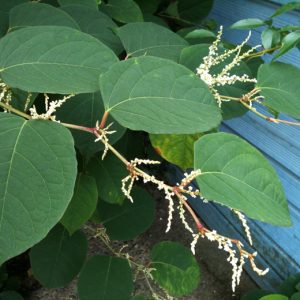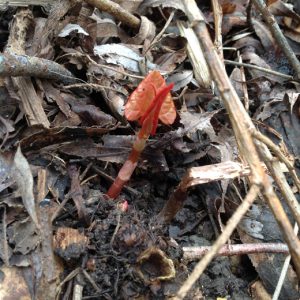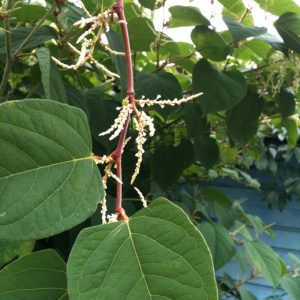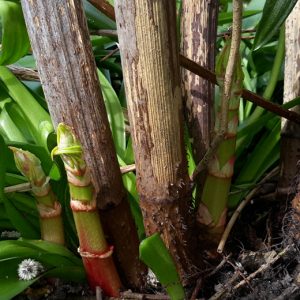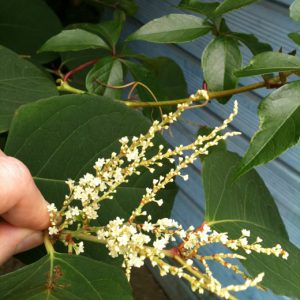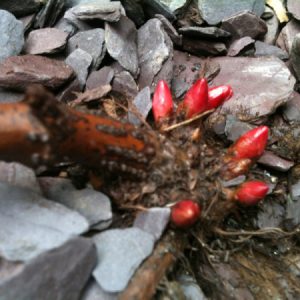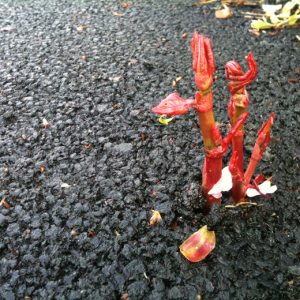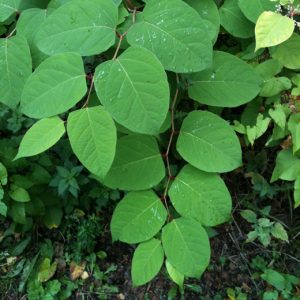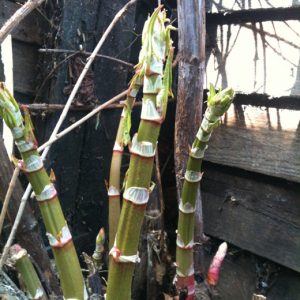Japanese Knotweed Specialists in Liverpool
TP Knotweed are the country’s leading experts on the identification, removal and removal of Japanese knotweed and other invasive plant species. Known infamously as Britain’s most invasive weed, Japanese knotweed can be found almost anywhere across the country.
Even cooler northern climates are not free from the weed, which grows notoriously fast through brick, stone, even concrete with costly consequences.
Japanese knotweed is infamously hardy, its bamboo-like shoots capable of forcing their way through rock, brick, concrete and metal piping. Built-up urban areas like Liverpool are therefore particularly susceptible to knotweed impacts, which can include water or gas leaks, property damage and weakened infrastructures. Repairs can be costly, never mind the economic impact that reduced property prices and refused mortgages can have on inner-city communities.
Japanese Knotweed Survey Liverpool
If you are looking to buy or sell a property in Liverpool, you will likely require a full Japanese knotweed survey to confirm the presence or absence of Japanese knotweed within the boundaries of your property. Many times, there are also cases where Japanese knotweed has spread from a commercial site such as a railway embankment to a residential property, and a survey can provide evidence.
Our Home Sellers & Buyers survey and report offers peace of mind to clients in Liverpool who are buying or selling property which is affected by Japanese knotweed and other invasive plants.
Our surveys in Liverpool include:
- A full walkover survey
- RICS Management Category Assessment
- Annotated photographs
- A GIS CAD site plan
- Site findings & professional recommendations on the most appropriate remediation method
- A quotation on the recommendations above
Pardot Form: Free Survey (Basic Template)
"*" indicates required fields
Our process

Complete our 2 step form.

Receive a call back within 24 hours to organise your survey.

Survey takes place.

Documentation and (if necessary) quotation sent within 24 hours.

Treatment starts.
Japanese Knotweed Removal Liverpool
Japanese knotweed has an incredibly robust plant structure, allowing it to grow in almost any environment. This is largely why the removal of Japanese knotweed is so difficult.
With its ability to tolerate low temperatures, it can rapidly spread through any gaps in structures like bricks or concrete. By choosing a trusted Japanese knotweed removal specialist in Liverpool, you can ensure your infestation is removed permanently, and avoid the cost of knotweed damage in future.
Japanese Knotweed Removal Cost in Liverpool
There is no one fixed Japanese knotweed removal cost, as this depends on the treatment plan and extent of your infestation.
Our careful and methodical treatment of Japanese knotweed using appropriate chemicals and dosages over time allow for successful control of the Japanese knotweed, as well as prevent it from spreading. We offer a 100% guarantee that our herbicide treatment programmes will prevent any future above ground growth. However, this treatment method does not guarantee that the underground rhizomes will be removed.
Excavation involves digging up the entire root system, and is the only method which allows Japanese knotweed to be removed fully and permanently. It’s important for works to be carried out by experts such as TPK knotweed, to ensure complete removal, as a minute piece of rhizome has the ability to regrow and lead to spreading.
Japanese Knotweed in Liverpool: The Facts
Like many urban areas in the UK, Liverpool is known to be widely affected by Japanese Knotweed. Here are some recent observations about Japanese knotweed in the Merseyside region:
- Based on a survey conducted in 2019, Liverpool secured the fourth spot among UK cities with the highest incidence of Japanese knotweed. The survey revealed that around 3.8% of properties in Liverpool were affected by this invasive plant.
- The Centre for Ecology and Hydrology has reported that approximately 1.5% of land parcels in the wider Merseyside region, including Liverpool, are home to Japanese knotweed.
- Liverpool City Council has acknowledged Japanese knotweed as a significant issue and advises property owners on how to manage and control the plant. The council has implemented measures to monitor and control the spread of Japanese knotweed on public land and advises property owners to seek professional advice for effective treatment and removal.
- The cost of Japanese knotweed removal in Liverpool can vary depending on the extent of the infestation and the required treatment methods. Estimates suggest that it can cost several thousand pounds to treat and remove Japanese knotweed from affected properties if left too late.
Japanese knotweed poses an increasing concern in Liverpool, as it does in numerous urban areas throughout the UK. To address this issue, property owners and developers should maintain vigilance, stay mindful of the potential presence of Japanese knotweed, and implement suitable measures to effectively manage and control its spread. By taking proactive actions, you can minimise the risks and costs associated with this invasive plant.
Dealing with Japanese Knotweed in Liverpool
Liverpool is a major port, and was the port of registry of the RMS Titanic. It also boasts a number of World Heritage Sites, representing the pinnacle of human creativity, values and cultural significance.
Unfortunately Japanese Knotweed represents a particular threat to high density urban areas like Liverpool, where the close proximity of residential, commercial, and development spaces put them at high risk to the fast growing, fast spreading weed.
The best way to avoid financial and legal costs is to contract a licensed Japanese Knotweed removal specialist. A PCA-accredited expert with a 10-year Insurance-Backed Guarantee is a reliable and effective way of treating your knotweed and eliminating the problem. For cases in and around the Liverpool area, TP knotweed can help.






Looking for professional help in removing Japanese knotweed in Liverpool?
Read What Our Customers Are Saying



